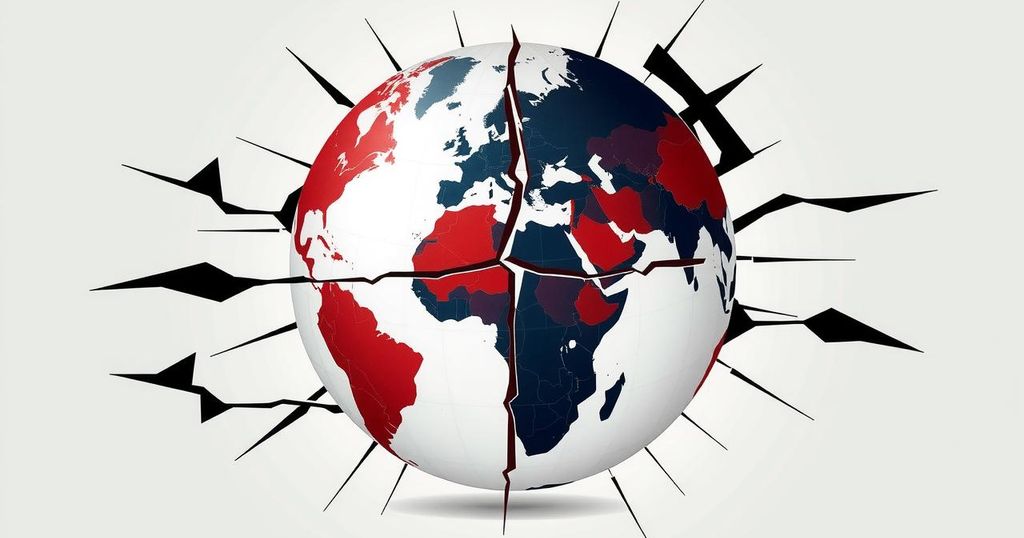Venezuela Declares Marco Rubio ‘Enemy’ Amidst Supranational Dispute with Guyana

The U.S. reaffirmed its support for Guyana’s claim over the disputed Essequibo region, leading to a strong response from Venezuela’s Foreign Minister, who labeled Rubio an “enemy” of the nation. The ongoing territorial dispute, rooted in a 1899 arbitration, remains unresolved, with Venezuela contesting international court authority and threatening to explore resources in the region as tensions escalate between the two countries.
On January 27, American Secretary of State Marco Rubio reaffirmed the United States’ commitment to support Guyana’s sovereignty concerning the disputed Essequibo region claimed by Venezuela. In response, on January 28, Venezuelan Foreign Minister Yvan Gil declared Rubio an “enemy of our country,” accusing him of harboring an “unhealthy obsession” aimed at disempowering Venezuela.
The Essequibo region, rich in resources, constitutes over two-thirds of Guyana’s land area and has been governed by Guyana for more than a century. Gil criticized Rubio for allegedly endorsing what he referred to as the “fantasies” of the Guyanese government, which he claimed intends to strip Venezuela of its historical rights to the territory.
Gil further emphasized that the genuine approach to resolving this territorial controversy is through the 1966 Geneva Agreement. However, he has been misleading concerning the origins of the dispute, which stemmed from an international tribunal’s ruling in 1899 that granted sovereignty of Essequibo to British Guiana, now Guyana.
Since achieving independence in 1966, Guyana has followed a U.N.-backed treaty aimed at resolving disputes with Venezuela through international means. After unsuccessful negotiations in 2018, U.N. Secretary-General Antonio Guterres appointed the International Court of Justice (ICJ) to address the matter, although Venezuela has contested the ICJ’s jurisdiction.
Venezuela’s leadership has dismissed ICJ authority while contemplating extra-legal avenues for resolution. Notably, a planned popular referendum for December 2023 regarding the integration of Essequibo into Venezuela was deemed illegal by the Organization of American States, with the ICJ urging Venezuela to refrain from any actions claiming sovereignty or control over the region.
In December 2023, President Nicolas Maduro proposed a new Venezuelan state, “Guayana Esequiba,” and proclaimed intentions to begin utilizing Essequibo’s natural resources. Despite an agreement on December 15, 2023, to avoid threats or military force, Venezuela has increased its military presence in the disputed area.
In March 2024, the Venezuelan National Assembly enacted a law recognizing Essequibo as part of Venezuela, yet its implementation depends on a Supreme Court ruling. Analysts suggest that Maduro’s focus on the Essequibo dispute is aimed at garnering public support ahead of the July 2024 elections, amidst allegations of electoral fraud. Recently, Venezuela finalized the construction of a bridge linking its territory to Ankoko Island, claimed as part of the Essequibo region.
The territorial dispute between Venezuela and Guyana over the Essequibo region dates back over a century. The 1899 international arbitration awarded the land to British Guiana, which is now Guyana. Following Guyana’s independence, discussions regarding the boundary and sovereignty have involved international agreements under U.N. auspices, notably appreciating the role of the International Court of Justice (ICJ) in resolving such disputes.
In summary, tensions between Venezuela and Guyana are escalating, particularly around the disputed Essequibo territory. The U.S.’s reaffirmation of support for Guyana’s sovereignty has incited strong reactions from Venezuela, showcasing the complexity and historical depth of this territorial controversy. With Maduro’s efforts to solidify control over Essequibo amidst looming elections, the situation continues to evolve, presenting potential threats to regional stability.
Original Source: www.voanews.com







